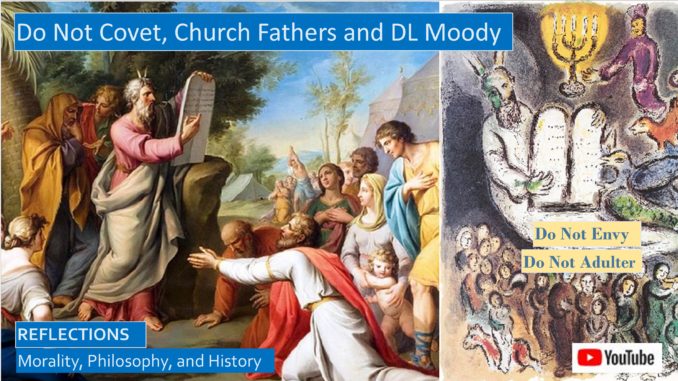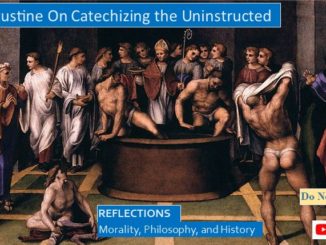
In Like, Jesus told this parable to some who trusted in themselves that they were righteous and despised others: “Two men went up into the temple to pray, one a Pharisee and the other a tax collector. The Pharisee stood and prayed thus with himself, ‘God, I thank thee that I am not like other men, extortioners, unjust, adulterers, or even like this tax collector. I fast twice a week, I give tithes of all that I get.’ But the tax collector, standing far off, would not even lift up his eyes to heaven, but beat his breast, saying, ‘God, be merciful to me a sinner!’ I tell you, this man went down to his house justified rather than the other; for everyone who exalts himself will be humbled, but he who humbles himself will be exalted.”[1]
We imagine we are the tax collector, and perhaps we even thank God we are not like the Pharisee over there, but if we go to church on Sunday and live a cut-throat life on Monday, taking advantage of those around us, not loving our neighbor, then we are the Pharisees. Perhaps that is the best way to learn from this parable, to see ourselves as Pharisees, so we too can repent like the tax collector. Ask any waitress, the best tippers are the drunks who come in from the bars on weekend nights, but the worst tippers, the least generous, are the Christians coming in for their Sunday brunch after church. We are fine with going to church and loving God, but our neighbor who doesn’t go to church with us, not so much.
So perhaps it would be better for us in the modern to start with the last commandment and go to the first, for like we hear in the country song, if we do not love our neighbor, we can never Love God. Before we study this section in the Catholic Catechism, in this blog we will listen to the teachings of the Church Fathers and others who have commented on the command, DO NOT ENVY.
CHURCH FATHERS AND OTHERS ON ENVY
St Gregory Palamas teaches us that the command not to covet is not only a negative THOU SHALT NOT command but is more a SHALL positive command, that we shall be generous and show charity and lend to our less fortunate neighbor, and to watch after our neighbor’s interests, returning to him lost items you may find. “Covetousness, conceived in the soul, produces sin; and sin, when committed, results in death (James 1:5). Refrain from coveting what belongs to others and avoid filching things out of greediness. Rather you should give from what you possess to whoever asks of you, and you should, as much as you can, be charitable to whoever is in need of charity, and you should not refuse whoever wants to borrow from you (Matthew 5:42). Should you find some lost article, you should keep it for its owner, even if the owner is hostile towards you, perhaps your kindness will change him and your kindness will overcome evil, as Christ commands.”[2]
Does this last of the commandments simply admonish, You shall not covet your neighbor’s wife or anything that belongs to your neighbor? No, this is far too important a commandment than that, it first lists all that is important to your neighbor that you should not covet, and then says you should not covet any of your neighbor’s other possessions. The Exodus version admonishes us:
You shall not covet your neighbor’s house; you shall not covet your neighbor’s wife, or male or female slave, or ox, or donkey, or anything that belongs to your neighbor.[3]
If you love your neighbor as yourself, you will want the best for your neighbor, you will not be angry if he has something you do not, if your neighbor is more fortunate than you, if your neighbor is wealthier than you; rather, you will rejoice in your neighbor’s good fortune. Envy and covetousness is a dangerous sin, it leads to all the other sins, before you steal, before you adulter, before you murder, you covet. Envy is the enemy of friendship. Envy is a sin of your thoughts, that leads to a sin of your words, and ultimately leads to sins of commission, the sins of orneriness, theft, adultery, and murder. Guard against envy and you guard against these other mortal sins, guard against envy and you built parapets on the roof of your soul, guard against envy so you are able to love your neighbor as yourself.
If you truly seek to love your neighbor as yourself, to act rightly towards your neighbor you must first guard what you say, so you do not damage your neighbor’s reputation, and to do that you must first think rightly towards your neighbor, so that you may love your neighbor in the depths of your heart. To think rightly you must be careful not to covet your neighbor’s wife or anything that belongs to your neighbor.
An interesting observation by Von Rad in his commentary on Deuteronomy is that the Hebrew word for covet had a double meaning, it can be translated as coveting or as taking.[4] One possible implication is that because coveting itself is a sin, that spiritually coveting is a type of spiritual theft as we imagine a future day when that which is our neighbor’s belongings now belong to us. The initial envious temptation may not be a sin, but it develops into coveting when we feed the initial by our evil imaginings. Just as God heard the cry of the blood in ground drained from Abel’s murder, so God heard the cry of anger in Cain’s heart as he pondered the evil deed. The wrestling against sin begins in our heart as we wrestle with the temptation that seeks to grow into covetousness.
St John Climacus in his monastic handbook guards his monks from envy by having them give up their possessions. “Non-possessiveness is the resignation of care, life without anxiety, an unencumbered wayfarer, alienation from sorrow, fidelity of the commandments.” As envy is the gateway to all the other sins against your neighbor, for envy often precedes theft, adultery, anger and murder, so non-possessiveness leads us to fidelity to the commandments, enabling us to love our neighbor and our God. “He who despises what is material is rid of quarrels and controversies, but the covetous man will fight to the death for a needle.” “The love of money is and is called the root of all evils (see 1 Timothy 6:10), because it produces hatred, thefts, envy, separations, enmities, storms, remembrance of wrong, hard-heartedness, and murders.” “Job showed no trace of avarice, when he lost everything he remained undisturbed.” When you cling to your possessions, do you own them, or do they own you? Were a hurricane to strike and sweep away all you own in the wind and the water and the waves, would you lose everything? “Waves never leave the sea, no do anger and grief leave the avaricious.” [5]
St Maximus the Confessor links self-esteem to avarice, “those who are full of self-esteem acquire riches and those who are rich become full of self-esteem.” Likewise, he links rancor and resentment to envy, “it is hard to check the resentment of an envious person, for what he envies in you he considers his own misfortune. You cannot check his envy except by hiding from him the thing that arouses his passion. How can you defeat your own envy? By “rejoicing with the man whom you envy whenever he rejoices, and grieving whenever he grieves, fulfilling St Paul’s words, ‘Rejoice with those who rejoice, and weep with those who weep. (Romans 12:15)”[6]
St Thalassios teaches us that “pride and boastfulness are characterized by hypocrisy, guile, trickery, pretense and worst of all, deceit. These are aided and abetted by envy, strife, anger, resentment, and rancor. Such is the state of those who live dissolutely, and such are the treasures hidden in my heart (Matthew 12:35).” “The three most common forms of desire, gluttony, self-esteem, and avarice, have their origin in the passion of self-love.” From these base desires flow “resentment, anger, rancor, envy, and listlessness.”[7]
Dwight Moody sees ENVY as the creeping sin, the sin few confess, the sin few notice as it creeps into their souls, the sin of the mind and the heart that leads us to all other sins. “Covetousness and stealing are Siamese twins,” and add lying they are triplets. “Covetousness destroys faith and spirituality, turning men’s minds and hearts away from God.” Nations go to war when they covet riches and territory. The Scriptures squeeze the covetous between thieves and drunkards. Envy is what led Eve, then Adam, to the first sin, “they were not satisfied with that God had showered upon them, but coveted the wisdom of the gods which Satan deceitfully told them might be obtained by eating the fruit.”[8]
In their book on the Ten Commandments, Dr Laura and her rabbi say that in the Hebrew in Deuteronomy two words are used, we are forbidden to covet our neighbor’s wife while we are forbidden to desire our neighbor’s house, some scholars see desiring as leading to coveting. Coveting is a sin of our thoughts, Proverbs exhorts us that among the six things the Lord hates is a “heart that devises wicked plans.”[9] Likewise, Leviticus exhorts us, “You shall not hate your brother in your heart, but you shall reason with your neighbor, lest you bear sin because of him.”[10] As Dr Laura and her rabbi put it, coveting “involves wanting something at someone else’s expense, not simply just wanting something.”[11]
[1] https://www.biblegateway.com/passage/?search=Luke+18%3A9-14&version=RSVCE
[2] St Gregory Palamas, “A New Testament Decalogue,” In the Philokalia, The Complete Text, compiled by St Nikodimos of the Holy Mountain and St Makarios of Corinth, Vol. 3, translated and edited by GEH Palmer, Phillip Sherrard, and Kallistos Ware (London: Faber and Faber, 1981), p. 330, chapter 10.
[3] https://www.biblegateway.com/passage/?search=exodus+20%3A17&version=NRSVCE
[4] Gerhard Von Rad, “Deuteronomy, A Commentary”, translated by Dorothea Barton (Philadelphia: Westminster Press, 1966), p. 59.
[5] St John Climacus, Ladder of Divine Ascent, translated 1959 by Archimandrite Lazarus Moore (Brookline: Holy Transfiguration Monastery 1979), pp. 122-123, Step 17, chapters 1,10,11,13,14.
[6] St Maximus, “Third Century on Love,” In the Philokalia, The Complete Text, compiled by St Nikodimos of the Holy Mountain and St Makarios of Corinth, Vol. 2, translated and edited by GEH Palmer, Phillip Sherrard, and Kallistos Ware (London: Faber and Faber, 1981), pp 96-98, chapters 83,91,87,88,89.
[7] St Thalassios, “Third Century on Love, Self-Control and Life in Accordance With the Intellect” In the Philokalia, The Complete Text, compiled by St Nikodimos of the Holy Mountain and St Makarios of Corinth, Vol. 2, translated and edited by GEH Palmer, Phillip Sherrard, and Kallistos Ware (London: Faber and Faber, 1981), pp 323-324, chapters 96,98.
[8] DL Moody, “Weighed and Wanting, Addresses on the Ten Commandments,” (New York: Fleming Revel Company, 1898), pp. 58-64.
[9] https://www.biblegateway.com/passage/?search=proverbs+6%3A16-18&version=RSVCE
[10] https://www.biblegateway.com/passage/?search=leviticus+19%3A17&version=RSVCE
[11] Laura Schlessinger and Rabbi Stewart Vogel, “The Ten Commandments,” (New York: First Cliff Street/Harper Perennial, 1998), pp. 298-301




1 Trackback / Pingback